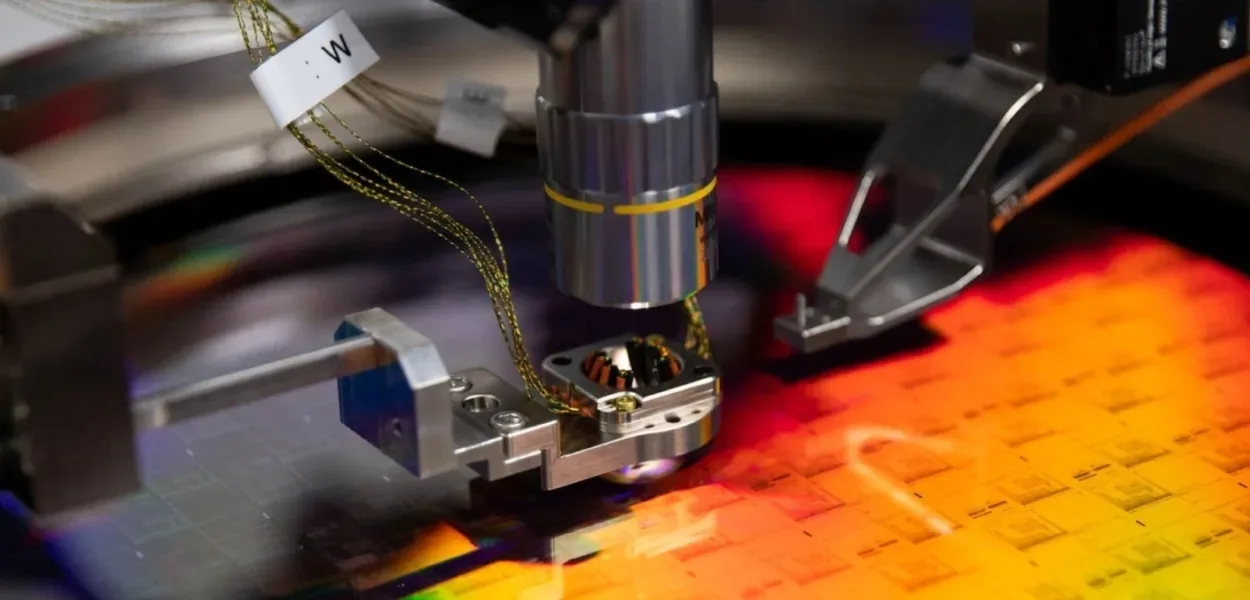One of the worlds best funded Quantum Start-ups has announced that with Global Foundries (GF), a semiconductor manufacturer will work together on the development of a massive scale quantum computer. PsiQuantum have been vocal in their ambition to build a million qubit systems. The partnership cements the ambitions to put the Q1 system into a commercial reality utilising silicon photonic and electronic technologies, which will be a milestone on the roadmap to a million qubit system.
PsiQuantum and GF have developed the core components required. These components are: single-photon sources and single-photon detectors, with precision and in volume. Production and manufacturing equipment in two of GF’s 300mm fabs can produce thousands of Q1 silicon photonic chips at its facility in New York, and state-of-the-art electronic control chips at its Fab 1 facility based in Dresden, Germany.
“In the past year, we have experienced a decade of technological change. Now, due to the digital transformation and the explosion of data we are faced with problems that require quantum computing to further accelerate the Renaissance of Compute,”
Amir Faintuch, senior vice president, Global Foundries
There is much interest in using semi-conducting technologies rather than competing technologies because there are 60 plus years of semi conductor experience – something that is not lost on investors. Getting a massive number of qubits into production is one of the goals of many in the Quantum industry, as just with classical computing and transistor count, more qubits can offer more possibilities and options to perform more complex algorithms making Quantum Computers ever more useful. Of course there are other technologies such as Ion Traps and Super conducting technologies. But typically only a few hundred qubits are currently achievable, so the news that qubit counts could rise over a thousand fold (three orders of magnitude) could accelerate massively the industry and kick start an industrial revolution that could outclass the internet in terms of disruption.
More Complex Quantum Algorithms

There is excitement about the possibilities of quantum computing, and even quantum networks and a quantum internet. As the computational requirements evolve, the hardware must keep pace with the desire of quantum developers building the quantum circuit and that means more qubits. For example researchers are limited by the size of the integers that can factors by Shor’s algorithm because of the circuit depth and breadth required. More qubits could on the one hand mean security issues introduced by the likes of the Shor algorithm being capable to solving “real-world” cryptographic problems, but on the other could lead to developments in areas like Quantum Machine Learning taking a massive leap forward, also accelerating other industries such as Drug Development (to name just one).
“This is a major achievement for both the quantum and semiconductor industries, demonstrating that it’s possible to build the critical components of a quantum computer on a silicon chip, using the standard manufacturing processes of a semiconductor fab”
Peter Shadbolt, chief strategy officer and co-founder of PsiQuantum.
We don’t know the time-lines for Q1 exactly and the full roadmap – but by 2025 it is believed a final machine will be close. But we are watching with interest to see what happens with this latest development. Certainly PsiQuantum is very public in their ambition to scale rapidly and with the massive VC funding the company has certainly upped the ante when it comes to qubit numbers in their roadmap.

